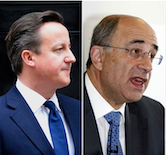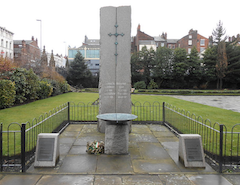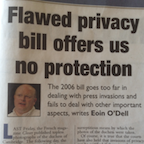Queen’s University Belfast n’est pas Charlie Hebdo; instead, it says nothing
 Padraig Reidy has reported that Queen’s University Belfast has cancelled a Charlie Hebdo conference, citing security fears. Áine McMahon also has the story in the Irish Times; and there is a short report on the BBC website. This is disgraceful. The symposium was entitled “Understanding Charlie: New perspectives on contemporary citizenship after Charlie Hebdo“; and, according to its call for papers (pdf), its aim was to invite the disciplines of the humanities and social sciences to respond to the social ruptures that followed the January 7 attack on the Charlie Hebdo newspaper in Paris. There can be no greater irony than the censorship of a conference devoted to censorship. In particular, the call hoped that the following questions would be addressed:
Padraig Reidy has reported that Queen’s University Belfast has cancelled a Charlie Hebdo conference, citing security fears. Áine McMahon also has the story in the Irish Times; and there is a short report on the BBC website. This is disgraceful. The symposium was entitled “Understanding Charlie: New perspectives on contemporary citizenship after Charlie Hebdo“; and, according to its call for papers (pdf), its aim was to invite the disciplines of the humanities and social sciences to respond to the social ruptures that followed the January 7 attack on the Charlie Hebdo newspaper in Paris. There can be no greater irony than the censorship of a conference devoted to censorship. In particular, the call hoped that the following questions would be addressed:
…Can we construct a global concept of freedom of speech? What role should censorship or ‘self-censorship’ play in contemporary societies, if any? How do we understand the propensity to ‘offend’ in a society that is home to diverse belief systems? What merits a ‘march’, and what are the merits of ‘marching’? Is satire cross-cultural, and how can we renegotiate the parameters of satire in the light of multiculturalism? Where do we draw the line between freedom of speech and incitement to hatred?






